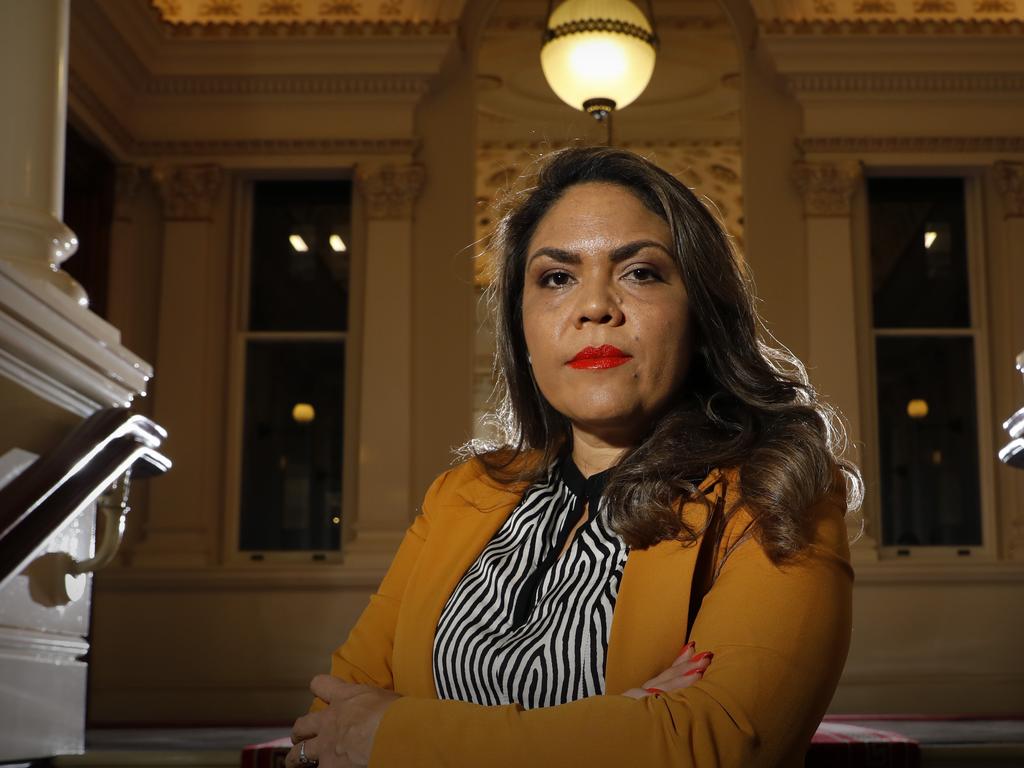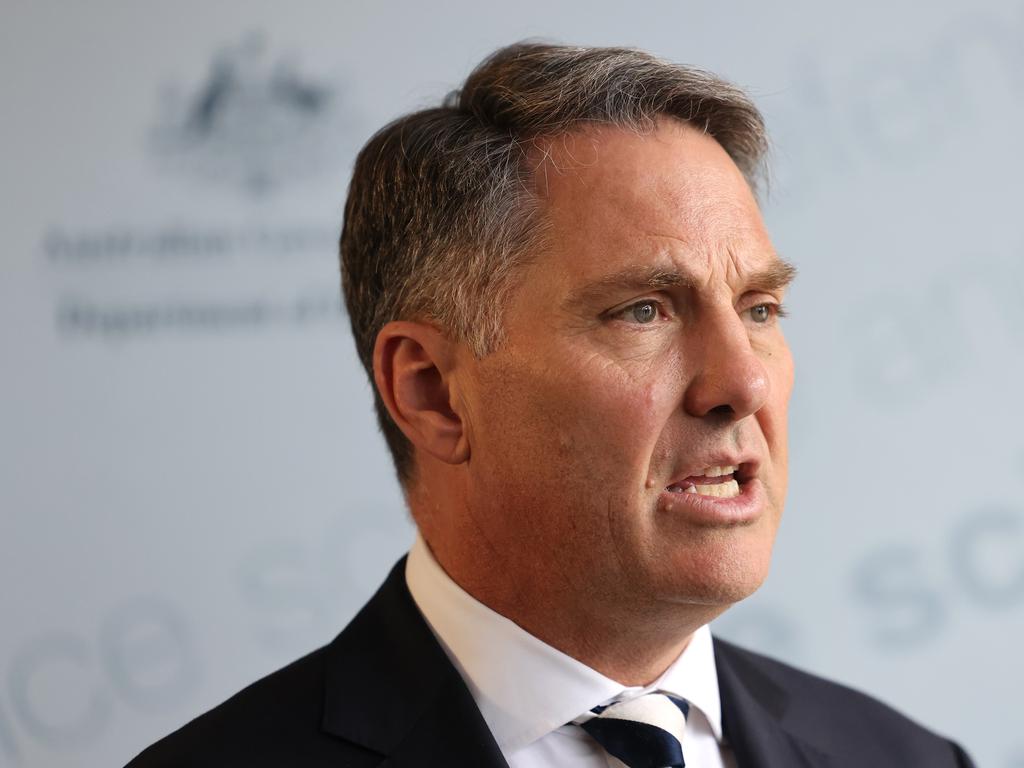‘Picnic’, ‘women’ among words deemed too offensive to use
If you think language policing is largely being practised by US arts students, think again.

Picnic. Women. Young. Old. Smartphone. Addict. All these words have something in common: they belong to a growing list of seemingly innocuous terms that have been deemed by universities, government departments and professional associations to be offensive or problematic.
In our era of performative kindness, representation and inclusion – not to mention sensitivity readers and open letters aimed at cancelling writers and thinkers deemed to have crossed a line – we are seeing a laudable rejection of racist, homophobic and sexist slurs turn into something more troubling: a regime of language policing that makes George Orwell’s Newspeak sound reasonable.
In June 2021, the Prevention, Advocacy & Resource Centre (PARC) at America’s Brandeis University released an “Oppressive Language List” which included the words and expressions “killing it” and “trigger warning” – because of their purported “connections to guns” – as well as “picnic”, “people of colour”, “crazy”, “addict” and “homeless person”.
PARC raised claims – which have been disputed – that “picnic” has historical associations with lynchings, and suggested replacing it with “outdoor eating’’. The university said the list’s “neutral” recommendations were not a requirement for students and staff, yet PARC went on to expand its glossary of oppressive terms in August 2021.
Among the new additions was the expression “whipped into shape” which, according to PARC, could evoke “imagery of enslavement and torture’’. PARC also urged students to replace “addict” with “person with a substance abuse disorder” – such terminology is being increasingly used in the health field – and recommended that “homeless person’’ be abandoned in favour of “person who is experiencing housing insecurity’’.
Clearly, if Brandeis’s language launderers have their way, songs from Beyonce’s Crazy In Love to Queen’s Crazy Little Thing Called Love would come with trigger warnings – sorry – content notes.

If you think such language policing is largely practised by American arts students with too much time on their hands, think again. It’s happening in Australia too, in bureaucracies, universities, schools, the health sector and corporate human resources departments, and it extends to everyday words and phrases including “women”, “he”, “she”, “old”, “young”, “disabled parking”, “ethnic group” and “special education”.
All of these terms are being deemed exclusionary or potentially offensive by an army of right-thinking academics and bureaucrats who believe they can empower minorities by engaging in a kind of linguistic puritanism.
Harvard University Psychology professor Steven Pinker, who is giving a keynote address at Sydney’s Festival of Dangerous Ideas tomorrow, coined the term “euphemism treadmill” back in 1994. Professor Pinker said this involved inventing “new polite words to refer to emotionally laden or distasteful things, but the euphemism becomes tainted by association and the new one that must be found acquires its own negative connotations’’.
One example that comes to mind is how the word “handicapped” was replaced by “the disabled”, then “differently abled”. This term was (thankfully) ditched in the shift towards people-first language such as “person with a disability”. But recently, some disabled people have said they prefer the more succinct “disabled person”.

Asked whether the “euphemism treadmill” has become turbocharged in the 21st century, Prof Pinker told Review: “Yes, with a vengeance … (with) an exploding list of terms deemed problematic by universities and professional associations, including ‘master’, ‘black box’, ‘blacklist’, ‘elderly’, ‘crippled’, ‘crazy’ and ‘smartphone’.”
In the 1990s, the Enlightenment Now and Rationality author noted that the treadmill had an unfortunate side effect: People without a “drop of malice or prejudice” were being condemned as bigots for using a word newly ordained as offensive. It was a prescient remark: In 2020, Pinker found himself under attack when hundreds of linguistics researchers signed an open letter urging the Linguistic Society of America to revoke his distinguished fellow status. They had dug up old tweets by the writer and academic which, they claimed, revealed racial and sexist biases.
Prominent academics including African-American linguist John McWhorter and leftist provocateur Noam Chomsky defended Pinker, while the society told the letter writers it did not “control the opinions of its members, nor their expression’’. Pinker described this attack as “part of a larger movement seeking monsters to destroy (by) … troll(ing) through tweets and statements seeking to find evidence, however tortured, that there’s some kind of prejudice behind them’’. At the Festival of Dangerous Ideas, Pinker will ask whether we are entering a new dark age and whether Enlightenment tenets – reason, science and humanism – are being eroded “by a desire to burn it all down’’. The shoddy treatment of the Harvard professor and other academics and writers who have strayed from politically correct language and orthodoxy, raises the question: How does one put on a festival of truly dangerous ideas in this narrowing and punishing environment?
FODI co-curator Simon Longstaff told Review it has become “increasingly difficult”, given “the general sense that words are being weaponised and that people who misspeak are not just making some kind of an error, but this is somehow revealing a moral fault. That is new, and I think accelerating.’’

While he found that race and transgenderism were sensitive topics in the past, now the notion “that an idea is exposed to scrutiny seems to be a challenge to every part of the political spectrum’’.
As recently reported by The Australian, a leading cancer charity, the Australian Cervical Cancer Foundation, and government-linked websites are using gender-neutral terms such as “every body with a cervix” and “people who have symptoms of cervical cancer” – often omitting the word “women” from vital health information that overwhelmingly relates to them.
Self-described “radical feminist”, academic and author Holly Lawford-Smith condemns this phenomenon as “careless”, “ignorant” and a new sexual double standard, given that the word “man” is still “the default” in health and other fields. “I think it is a form of sexism, like women’s rights have become invisible,’’ she said. Dr Lawford-Smith, a senior lecturer in political philosophy at Melbourne University, argued the push towards gender-neutral terms that exclude women was not necessarily driven by men or trans activists. She said “a lot of women” were “gleefully handing away their rights in their language” because they have so much “empathy” for trans men and women. “It’s like feminism itself has gotten into this incredibly stupid position, acting out these feminine stereotypes of … being really kind,’’ she said.

Dr Lawford-Smith said inclusive language should prioritise women’s as well as trans peoples’ interests. Like Pinker, she has been the target of a group open letter aimed at discrediting her. In April, academics and Twitter activists sent an open letter to Oxford University Press, objecting to its plan to publish her latest book, Gender Critical Feminism.
Published in May, the book “defends gender-critical feminism, a theory and movement that reclaims the sex/gender distinction (and) insists upon the reality and importance of sex’’. The letter sent to OUP claimed Lawford-Smith’s book would embolden those who use anti-trans rhetoric and called its title an “anti-trans dog whistle”. The Canadian who organised this attempted takedown of a fellow female academic, described the open letter as “an act of care”.
In a recent editorial, science journal Nature Human Behaviour warned it may reject research articles that could potentially stigmatize women, the gay community, the disabled or racial groups. While claiming that race and ethnicity are “sociopolitical constructs” and that genetic ancestry is a “biological construct”, the editorial made clear that scientific research papers would no longer be judged on merit alone. Pinker protested on Twitter: “Nature Human Behavior [sic] is no longer a peer-reviewed scientific journal but an enforcer of a political creed.’’

Writing in The Atlantic in response to the widely-mocked PARC list, US author and academic John McWhorter argued: “We are being preached to by people on a quest to change reality through the performative policing of manners’’. He said the list was “a sign of our times, in which language policing has reached a near fever pitch, out of a sense that labelling common terms and expressions as ‘problematic’ – that is, blasphemous – is essential to changing society”.
McWhorter, author of the incisive and provocative book Woke Racism, rightly concludes that “in the end, working to change conditions is much more important than obsessively curating the words and expressions we use to describe them”.
My own informal survey of “inclusive language” guides in Australia reveals that correct linguistic etiquette is becoming ever more complex and confusing. According to Australian Press Council and Victorian government guides, asking a transgender person “What is your preferred pronoun?’’ is not OK, as it implies that gender identity is a choice. You should instead ask, “What pronoun do you use?’’

Victorian public servants are warned that when writing formal letters, “gender neutral titles like Dr can always be used, but gendered titles such as Ms, Miss, Mrs or Mr may not apply to and may offend some people’’. The policy position seems to be that while only a small percentage of the population is transgender, we must assume that everybody potentially is, to avoid causing offence. The Victorian guide explains that Inclusive LGBTQI+ language “is a way of acknowledging and respecting the diversity of bodies, genders and relationships’’, seemingly oblivious to the fact that many of us, regardless of gender or sexuality, would feel insulted by being described as “bodies”.
In its 2020 guide for gendered terms in library-created content, Sydney University library professes a similar horror of pronouns. Its guide says the library uses “known pronouns when the author of a primary source indicates their own gender’’ and “they/their/them” when a primary source does not indicate their gender – interestingly, this rule applies to historical as well as contemporary documents. The library guide states: “As a general rule, the library avoids pronouns wherever possible, preferring to use an individual’s name.’’
Striking a more utilitarian note, a Victorian Department of Education web page on inclusive language declares that “disabled parking spaces” are out, while “accessible parking spaces’’ are in. Special needs education is frowned upon although it, too, began life as a euphemism. “Avoid the use of the term ‘special’ when referring to people with disability,’’ the department urges. “They don’t have ‘special needs’ … Segregation of people with disability historically (and sometimes still) occurred under the banner of ‘special’.”

Extending the theme of exquisite sensitivity, an Australian government style manual tells public servants the words “elderly”, “old” and “young” are potentially dodgy. It says: “Standalone words in everyday use, like ‘old’ and ‘young’, can carry bias or unintended subtext. Words that carry stereotypes, for example ‘elderly’, are not acceptable.’’ On cultural and linguistic diversity, this guide says: “Avoid using words such as ‘ethnic Australians’ or ‘ethnic groups’. This can imply that migrant heritage or migrant status is unusual.”
If the euphemism treadmill simply reflected the disconnect between everyday speech and arid academic rhetoric and public servant-speak, it would be no big deal. But as we have seen, under the current linguistic policing regime, resistance to the new orthodoxy can end or stall careers – or even lead to indifference when an author faces death threats. Dozens of writers recently accused the UK’s main writers union, the Society of Authors, of failing to take seriously death threats made against JK Rowling after she tweeted her horror over the stabbing of fellow author Salman Rushdie. The society denies this and has been backed by a rival group of writers.
Yet ever since Rowling mocked a headline about “people who menstruate” in 2020, she has been condemned as transphobic – which she denies – and has been treated like a modern-day heretic. Earlier this year in a subway advertisement, The New York Times depicted a subscriber who imagines Harry Potter “without its creator”. Surely there is a faint echo here of totalitarian regimes that disappear dissidents?
Asked which speakers the Festival of Dangerous Ideas, founded in 2009, has had the most pushback over, Longstaff mentions a talk by Muslim leader Keysar Trad on polygamy, and speeches by conservative columnist Andrew Bolt and Cardinal George Pell. Who are the edgiest speakers this year? Longstaff lists historian and author Adam Tooze, who will argue we have failed to learn the lessons of history, and gender non-conforming artist Alok Vaid-Menon, whose “playing around with gender issues will be challenging to some”. He also predicts UK academic Joanna Burke will ruffle feathers while discussing The Last Taboo – the changing meanings throughout history of bestiality and zoophilia.
Longstaff says he is “astounded” by how “fractionated” our culture has become, with increasing numbers of people rejecting the idea of “belonging to some kind of universal group”. He warns that this splintering into identity-based subcultures and groups, combined with the euphemism treadmill, can “destroy” creative expression: “Artists of all kinds – visual artists, music, the writers, have always sought to be subversive of the existing order, wherever it might be.’’
Yet in the 21st century, he laments, “people talk about wanting to be safe all the time … It destroys the possibility of courage. Courage is about being prepared to engage with something that you recognise as being potentially hazardous.’’
The Festival of Dangerous Ideasis on at Carriageworks, Sydney, today and tomorrow.






To join the conversation, please log in. Don't have an account? Register
Join the conversation, you are commenting as Logout